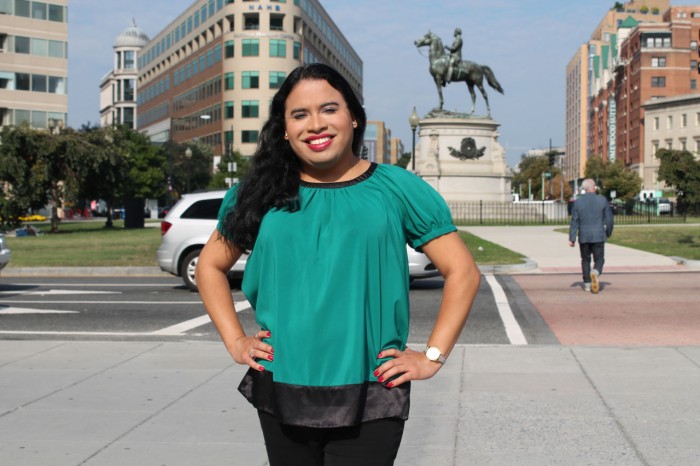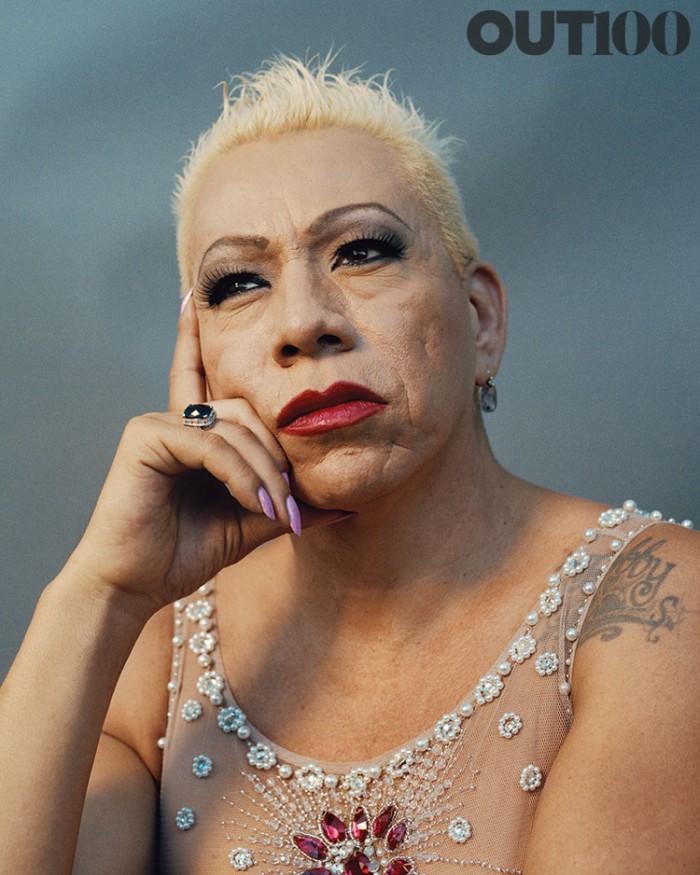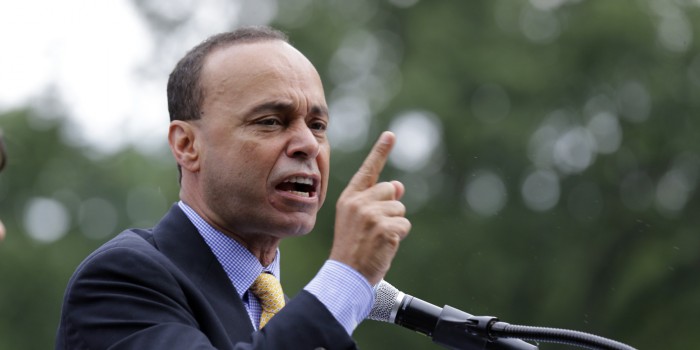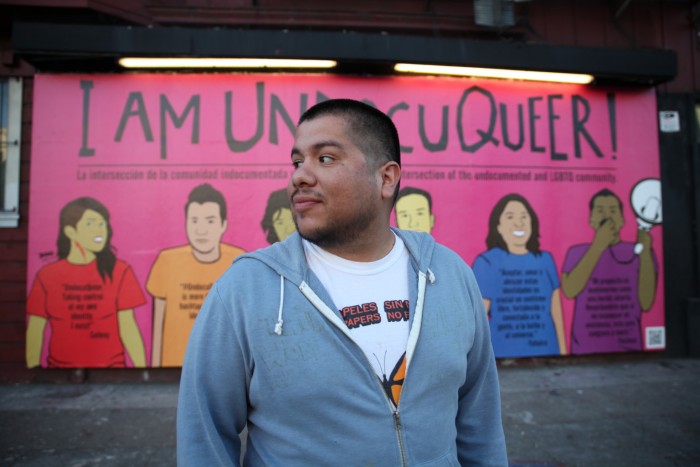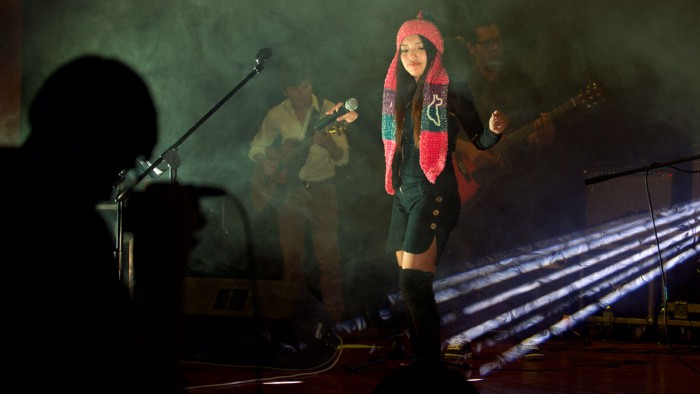Activists Who Made a Difference in 2015

This year, social media was ignited by a dress that divided the world in half, Left Shark memes, Hotline Bling GIFs, and basically all of the Black Twitter jokes that defined pop culture conversation (until brands eventually killed them… see: Netflix and Chill.) But activism was also a huge part of what 2015 looked like online. On Twitter, for example, #BlackLivesMatter and #MarriageEquality were some of the biggest trending topics of the year – movements that also carried over to Facebook, and then offline onto the streets.
And while the year started out with a debate over whether hashtag activism was all talk and no action, as the months went by we saw online movements help bring about tangible change. These movements helped force presidential candidates to grapple publicly with our nation’s racial inequality at their campaign events; they helped build momentum for a landmark legal ruling on same-sex marriage; they helped end the Confederate flag’s half-century atop the South Carolina capitol; and they helped indigenous communities advocate for themselves against exploitative brands. And let’s not forget we finally got some diverse emojis (and tacos!)
In fact, it might be fair to say that 2015 was a tipping point for how social justice battles are fought. With this in mind, we highlighted some of the Latino activists who helped make the world a better place in 2015.
Erika Andiola and Cesar Vargas
This year, Bernie Sanders added two DREAMers to his campaign: Erika Andiola and Cesar Vargas. Both have been instrumental in fighting for other undocumented immigrants in the U.S.
In 2013, Andiola rose to prominence after immigration officials raided her home. She filmed herself urging for a change, and because of the campaign she launched, she was able to get her family released.
Before she chose to join Bernie’s camp, each of the major Democratic candidates contacted Andiola for advice on immigration policy, meaning that she’s had a hand in more than just Sanders’ Latino outreach, according to BuzzFeed.
Andiola is perhaps the most famous DREAMer, and she has used her platform to affect Hillary Clinton’s position on immigration, but more tangibly, she has used her position to get other parents out of detention centers so they could be reunited with their children.
Andiola was elevated onto a bigger platform when she was hired by Bernie Sanders’ campaign as the Latino Outreach Strategist for the Southwestern Region, according to Fusion. Two months later, Andiola was promoted to press secretary for Hispanic media.
Her co-worker, Cesar Vargas, also made history this year when he became New York’s first undocumented lawyer. A co-founder of the Dream Action Coalition, Vargas is also a very high-profile activist in the DREAMer movement.
Andrea Pino
In 2013, Andrea Pino and Annie E. Clark – survivors of campus sexual assault – filed a complaint against the University of North Carolina at Chapel Hill. What they did was not unusual, but, according to Vanity Fair, because they used their real names, their stories gained more traction.
This year, Pino and Clark kicked off the year with a statement that was just as loud. They took part in The Hunting Ground, a documentary about campus rape that helped put the issue front and center in the media. The documentary has taken them to schools all over the US. At Middle State University, for example, the documentary gave university officials and students a chance to discuss the best way to address sexual assaults on campus, something that is a problem all over the world.
“When you put all of the stories together, all the dots on the map, you realize this is a national or even an international problem,” Pino said.
In 2014, Vogue declared that Clark and Pino were “shaping the national debate” when it comes to campus sexual assault, and this year, with a documentary that applies to more than just the 16 to 20 percent of undergraduate women who are sexually assaulted, they pushed the conversation further.
Because of all their hard work this year, Senators Kirsten Gillibrand and Claire McCaskill named Pino and Clark heroes.
Raffi Freedman-Gurspan
In August, Raffi Freedman-Gurspan became the first openly trans woman to be hired by the White House. In a year where members of the trans community – especially women of color – were killed in record numbers, Freedman-Gurspan’s appointment was an important one.
In November, the White House hosted an event that honored LGBT artists, which was moderated by Freedman-Gurspan, according to The New York Times.
Bamby Salcedo
This year, Bamby Salcedo quit her job to focus all her time on bringing #TransLatinaPower across the US. The Los Angeles-based activist and a group of others stormed the stage at the U.S. Conference on AIDS in September, and they were able to speak for about 20 minutes, according to Frontiers Media.
“We said what we wanted to say and I read out list of demands–and he [Paul Kawata, executive of the National Minority AIDS Council] was very supportive,” Salcedo said. “I felt we were not being banned from this space.”
The audience applauded Salcedo, who didn’t register for the conference because it’s too expensive for grassroots organizations, after her speech. But even when people haven’t been that welcoming, Salcedo has held her ground. In February, Salcedo gathered 100 activists at the Creating Change conference in Denver. She similarly rushed the stage to different results. “The first thing they did when we stormed the stage was turn off the lights,” she said. “They wanted us to leave. When we didn’t leave, they finally turned the lights on and gave us the mic.”
With Salcedo’s strong determination, it’s no wonder she made it onto Out100’s 2015 list.
Juan Escalante
Other than John Leguizamo, there weren’t a lot of mainstream celebrities backing up Latinos when it came to protesting Donald Trump’s turn as guest host on Saturday Night Live in November. But there were plenty of activists, who traveled to Rockefeller Center from different parts of the country to protest NBC outside.
Juan Escalante was one of those people. Escalante, a member of America’s Voice, delivered a box of half a million signatures hoping to get NBC to pull Trump.
The signatures ultimately didn’t dissuade NBC, but it didn’t change Escalante’s impactful year.
Escalante, who graduated from Florida State University in 2011, has become such an important voice among the immigrant community that people even message him on Twitter for advice. One woman, for example, messaged him to ask what she should do since her DACA hadn’t been renewed. Escalante answered her questions, and then wrote about it on The Huffington Post, so that he could reach more people at once.
Luis Gutierrez
Luis Gutierrez also responded to SNL‘s decision to have Trump host, but his method was more direct. The Chi-Rican Congressman took to the house floor while holding a sign that read #RacismIsntFunny.
“If Donald Trump had said gays and lesbians were murdering and raping Americans, would he get to host the show?” he said. “It is every bit as much of a fiction and a lie… But what if he said black people were murderers, rapists, and drug-dealers, would you still pitch skits with Donald Trump in some light-hearted banter?”
Gutierrez, who has been an Illinois congressman since 1993, also did right by his state. After it was revealed that Cook County State’s Attorney Anita Alvarez sat on bringing charges against a police officer in the death of Laquan McDonald, Gutierrez told Alvarez he would not be voting for her.
And we can’t forget that in June, Gutierrez did the impossible: he shut down Voldemort Ann Coulter. Gutierrez reminded her that every year 1 million American-born Latinos turn 18, and she has to deal with the new America that’s taking shape.
Julio Salgado
This year, Julio Salgado, the artist projects coordinator at CultureStrike, continued to make an impact on national conversations about immigration and diversity. One of the group’s biggest projects this year was Visions From the Inside, where 15 artists illustrated the letters written by immigrants held in family detention centers. It was a necessary project, especially in a year where nearly 100 women went on a hunger strike at a Texas detention center.
Then, in October, Julio produced a series of illustrations that, in his own words, “include us POC into some of [his] favorite shows and sitcoms.” The small project started off as a Facebook post, but soon was widely shared on the interwebs, getting picked up by plenty of media outlets and furthering the conversation about what inclusivity in media can look like.
We loved the project so much, it made our list of moments that helped define the conversation on diversity in media in 2015.
The Mixe Community
While indigenous activists have been doing grassroots work advocating for their communities for decades, this year social media helped them amplify their voices like perhaps never before. And no one had more social media savvy than Oaxaca’s Mixe community, who twice used the power of the internet to help snag worldwide headlines and attention in support of their causes.
First, there was the incident with Isabel Marant, the French label that copied the Mixe’s traditional huipil design and tried to pass it as their own (at six times the price.)
Activists on Twitter called out Marant for the plagiarism, and the story began garnering attention from media outlets, including Vogue, the Guardian, Racked, and our own site. Things got more complicated from there, when another French brand, Antik Batik, jumped in the fray and sued Marant for the pattern, claiming copyright of the textile design.
In response, Regino Montes, Secretary of Indigenous Matters in Oaxaca, announced his intention to bring a lawsuit against Antik Batik, stating “We are facing an obvious transgression of the Mixe people by companies who seek to rob them of their cultural heritage and intellectual property rights, recognized even by the United Nations.”
Eventually, in the swirl of bad press and lawsuits, Marant representatives admitted to the court that “after tracing the true origin of these clothes, [Marant] does not claim to be the author of this tunic and these designs.” Moreover, the court ruled that Antik Batik couldn’t claim any property rights on the designs either – making it a victory for the Mixe community in defending their cultural heritage.
Their second victory came against Coca-Cola. The soft drink brand’s Christmas commercial “Abre Tu Corazón” caused a firestorm for what many characterized as a “white savior” narrative told from a colonialist viewpoint. In it, young, attractive, white people traveled to a remote community in Oaxaca, ostensibly to spread Christmas cheer.But many – including The Alliance for Food Health, a coalition of consumer rights and health groups – didn’t see it that way.
After an outpouring of online criticism, Coca-Cola was forced to apologize and take down the ad. But really, the best response came from the Mixe community, who shot their own Coke-style ad and who held their own press conference to denounce the company.
“I believe this type of ad encourages acts of discrimination and racism and also encourages the breakdown of the social fabric by trying to impose a culture of consumption unfamiliar to these communities,” said Elvira Pablo, a Mixe lawyer at a press conference on December 2.
In both instances, the Mixe community proved its ability to hold multinational companies accountable, and garnered international media conversation about the rights of native communities.
Sergio Peñaloza Pérez
Sergio Peñaloza Pérez is the president of México Negro A.C., a leading non-profit and advocacy group focused on the rights of Afro-Mexicans. While México Negro A.C. is just one of many activist groups fighting anti-black racism in Mexico, this year the organization rose to the forefront of a years-long battle to get formal recognition in Mexico’s national constitution.
Currently, Mexico and Chile are the only countries in Latin America that don’t legally recognize their Afro-descendants as distinct ethnic groups, which activists believe contributes to the marginalization and anti-Black racism that these communities face. Since the 1910 Mexican Revolution, Mexico’s national identity has been defined by mestizaje – a term that recognizes the mixed indigenous and European racial ancestry of the New World after colonization, but often excludes African roots.
While the fight for recognition in the constitution continues, this year, the efforts of Sergio Peñaloza Pérez and México Negro got the community one step closer, by successfully winning the inclusion of Afro-Mexicans on Mexico’s national census. As a result,, 1.38 million people were able to accurately identify themselves on the census for the first time.
Renata Flores
Though Quechua is the second-most spoken language in Peru, with 4.5 million speakers, it has long been the subject of blatant discrimination. So much so, that according to a 2007 census, 13% of the Peruvian population decided not to teach their descendants the language for fear of being rejected or mocked. There was so much shame associated with speaking Quechua that UNESCO even declared it a vulnerable language.
Enter Renata Flores, a 14 year-old singer, who this year became the face of a youth movement to make Quechua cool, called ‘Las juventudes tambien hablamos Quechua.’ Flores sings covers of mainstream pop songs translated to Quechua, and her cover of Michael Jackson’s “The Way You Make Me Feel,” went viral, getting nearly 1.5 million views (which may be the most views ever gotten for a video in an indigenous language.)
Her work is inspiring many young Peruvians to reconnect with their roots and appreciate the Quechua language. Since becoming a local star, Renata held her first concert, where she sang in Quechua, English, and Spanish.

